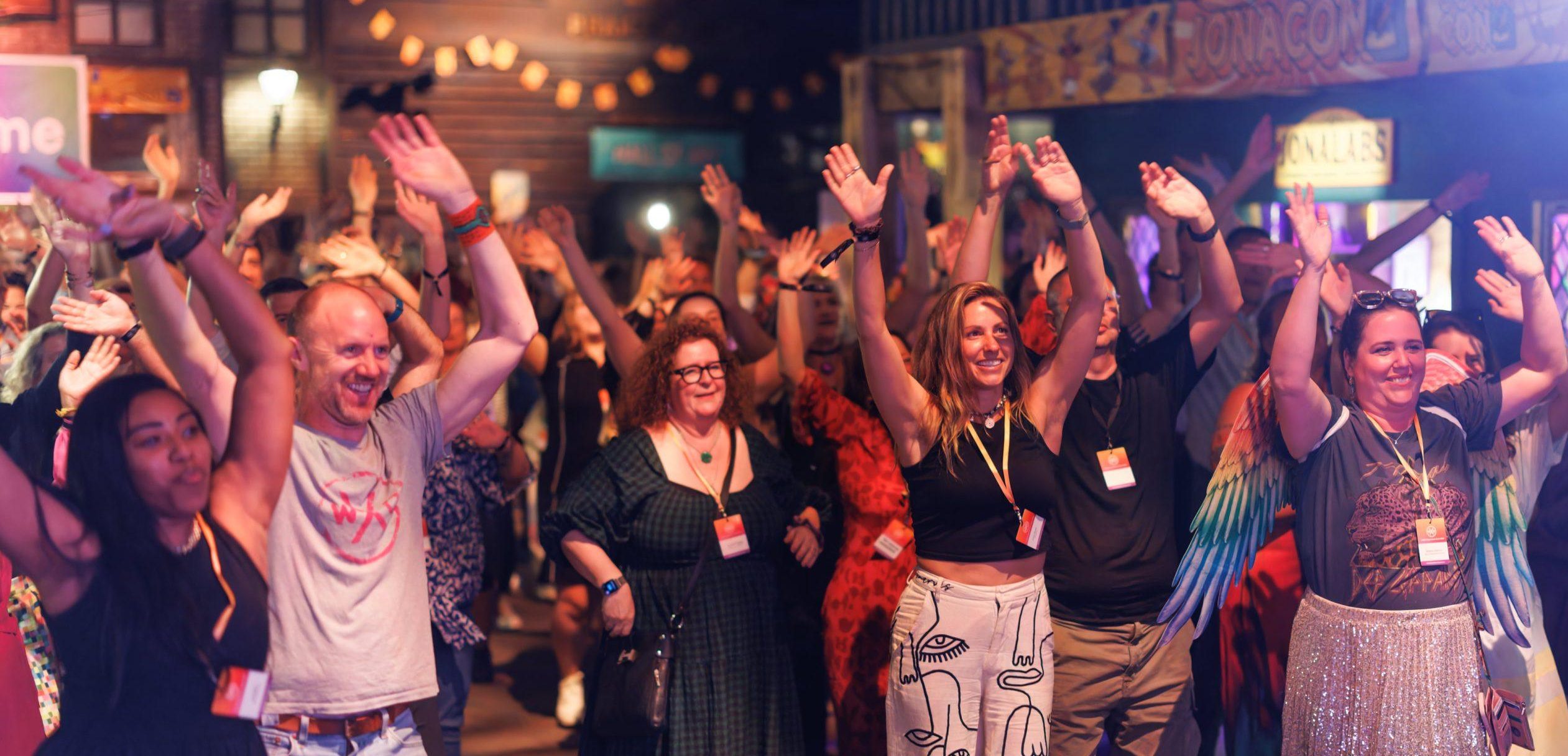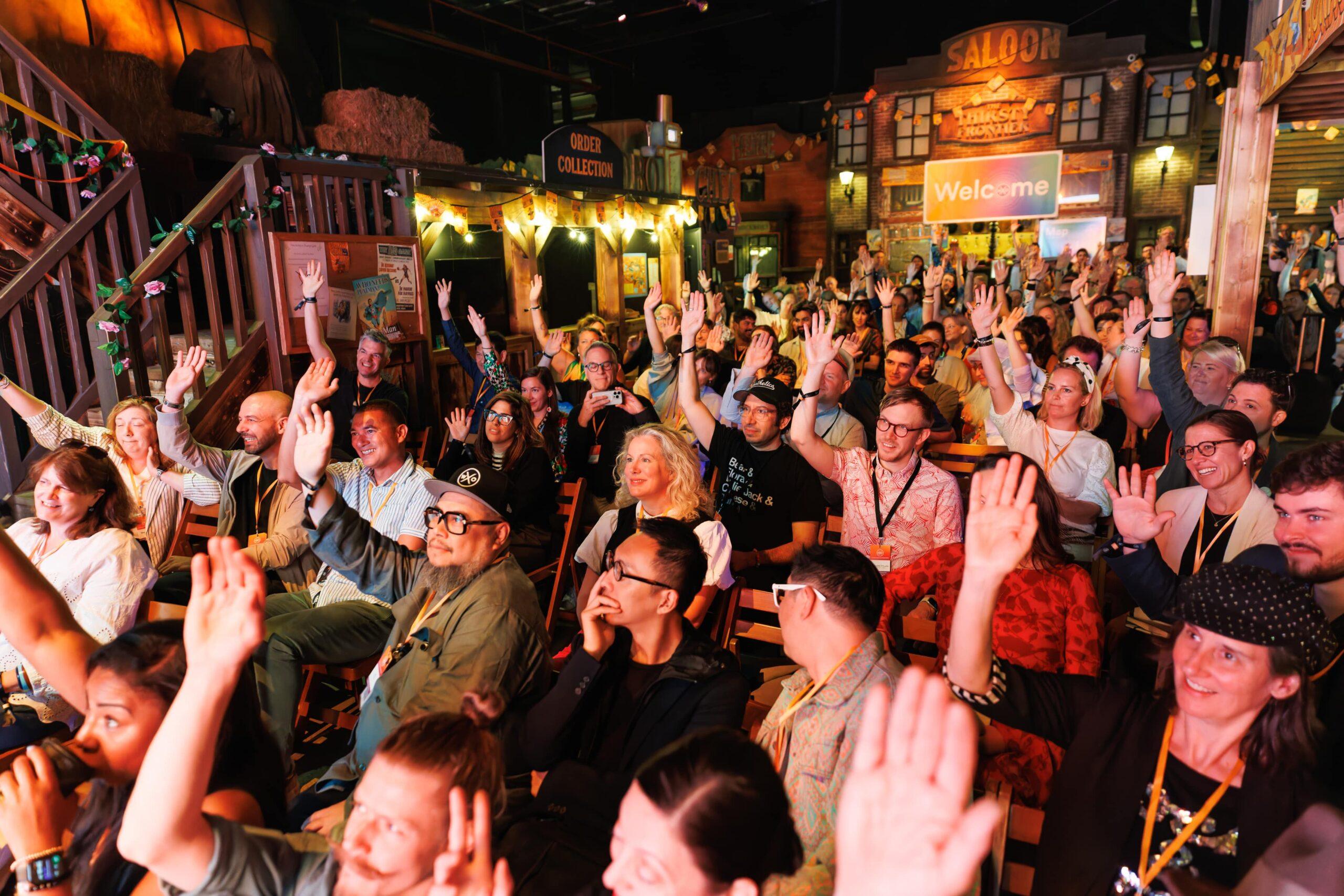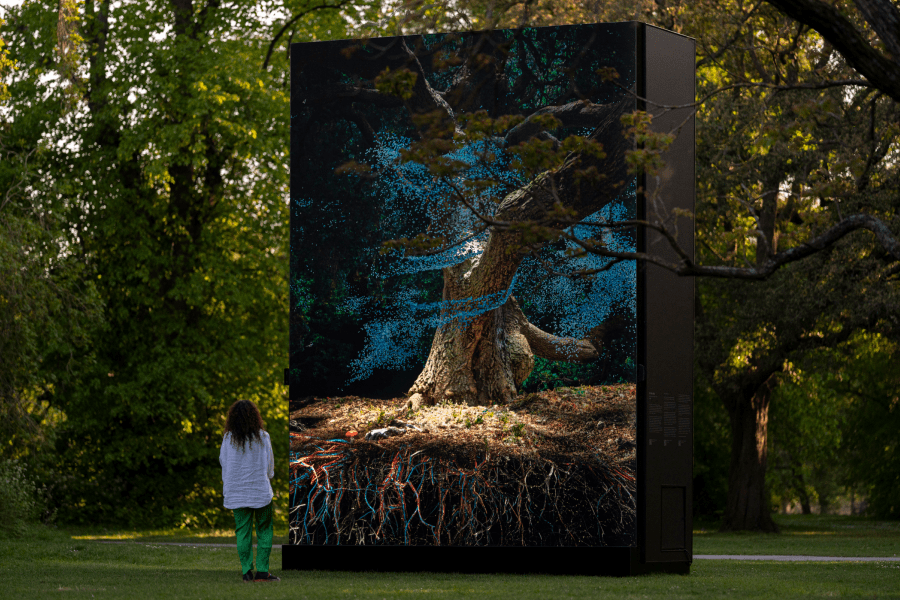At The WXO, we want to connect the dots across the Experience Economy and across the globe – so each month, we’ll be bringing you our round-up of the experiential stories that we think reveal something interesting, relevant or transferrable about the Experience Economy.
Welcome to the latest Experience Radar, where we’re getting up to speed with the latest travel trends, getting the lowdown on Saudi Arabia’s ambitious new gaming district, and blissing out at Outernet in London.
1. The Travel Trends To Look Out For In 2024
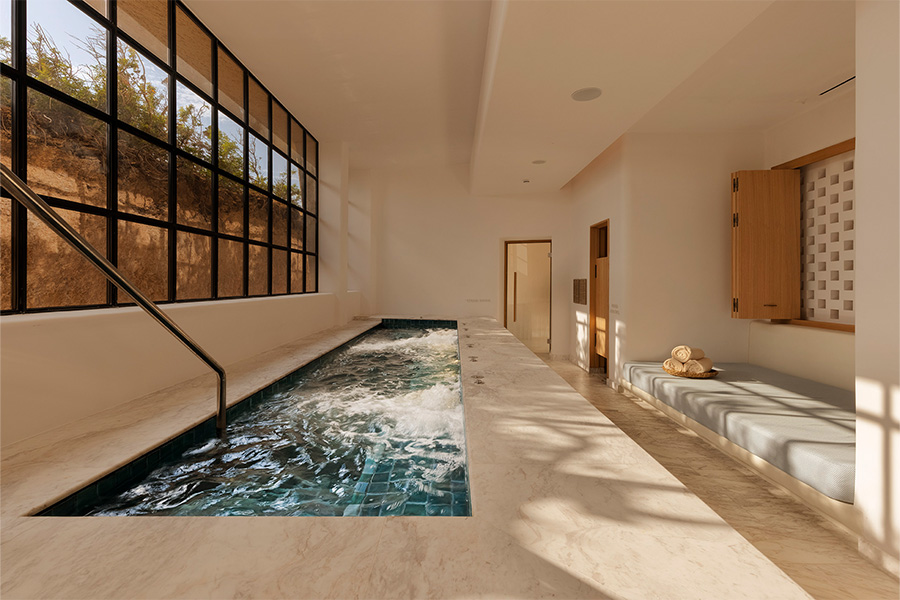
Following a few years of pandemic pandemonium, the travel industry bounced back in 2023 with tourists keen to make up for lost time. Pushing the limits of travel further than ever, in 2023 the first tourist voyage to space took place and wellness tourism exploded, as adventurers sought to be transformed by their time away. Condé Nast Traveller has rounded up what it thinks will be the biggest trends to hit the industry in 2024, and it makes for interesting reading. The rise of slow travel will speed up, while wellness breaks will shift their focus to life extension – the new Holy Grail of the super rich.
Many 2024 travel trends centre on a collective desire for deeper, more enriching experiences that tread lightly on the planet. Silent tourism and a thirst for stargazing in the world’s ‘dark sky zones’ is due to amp up this year, as travellers go to greater lengths to switch off from their plugged-in lives in order to reboot. Home swapping The Holiday style is also set to be big as remote working shifts up a gear, while cool-climate vacation spots and off-season bookings will have their moment in the sun, as sweltering summer hotspots lose their appeal. We’re particularly excited about the trend for luxury train travel ramping up, as it makes the journey as important and rewarding as the destination, and allows us to indulge our inner Agatha Christie.
2. BT Launches Immersive Experiences Test-Bed

Keen to be at the cutting-edge of tech, the BT Group has launched a test-bed to develop and trial immersive entertainment experiences. Inviting technology partners and customers to collaborate, the test-bed brings together enabling technologies with the power of EE’s 5G network and private 5G networks, and will explore how new capabilities such as network exposure functions, cloud-rendering and enhanced localisation best work with 5G networks to support the growth of mixed reality use cases. The test-bed will look to support a broad range of extended reality use cases, with a focus on augmented reality.
“Network optimisation is a fundamental enabler for immersive experiences that will require high bandwidth, high capacity and ultra-low latency networks that can be configured for the demands of different extended reality service applications. We’re delighted to invite others to work with us, using the test-bed to explore future use cases for consumers, enterprise and industry sectors,” said Gabriela Styf Sjoman, MD for research and network strategy at BT. While still in the testing phase, the platform has enabled demonstrations of use cases for education, sports broadcasting and medical imaging.
3. New Gaming District To Open In Saudi
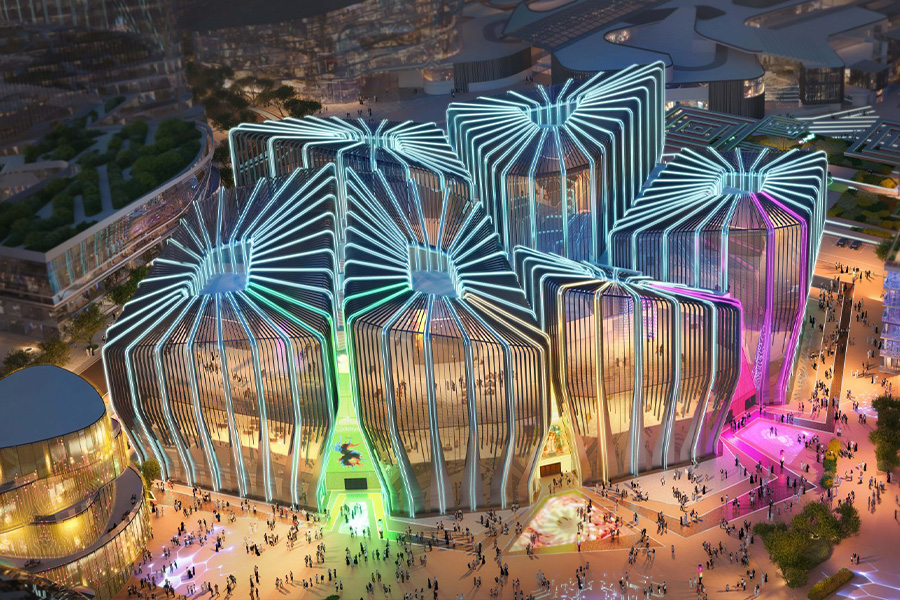
With entertainment developments taking place at lightning speed right now in Saudi Arabia, news reaches us that a new gaming and esports district is being planned for Qiddiya – a cultural, sports and entertainment destination on the outskirts of Riyadh. As reported by BlooLoop, the shiny new 500,000-square-metre district, which will boast four esports venues for global events, alongside gaming-themed apartments and hotels, and 100,000 square metres of retail, dining and entertainment experiences, “aims to establish the kingdom as the global epicentre of the rapidly growing gaming and esports industry”.
One of the entertainment spaces will have the largest indoor LED screen in an esports area, as well as 5,300 seats, making it one of the three largest esports arenas in the world. With a combined seating capacity of 73,000, the US$2.6 billion district, which is being spearheaded by Saudi’s crown prince Mohammed bin Salman, is hoping to attract up to 10 million visitors a year. Highlights will include a speed park track, golf courses, a water park, a Six Flags theme park and a multipurpose stadium. And if that wasn’t enough, the space will also house the regional HQs of over 30 leading video game firms.
4. Bompas & Parr Map Out Future Of Food

Experiential specialists Bompas & Parr have looked into their crystal ball to map out what they deem to be the biggest food and drink trends to emerge in 2024. Based on the latest scientific discoveries, design innovations and technological advancements, the duo’s Imminent Future of Food & Drink report focuses on the intersection between food as immense joy and immense challenge. Focusing on big swings in the foodscapes of the future, among the trends they predict will take hold are fine dining in the stratosphere and the diversifying of agricultural production for a stronger food landscape.
The pair also predict that bars and restaurants will go to even greater lengths to entertain in 2024, with the likes of Singers in Brooklyn leading the way, which has hosted everything from sauna raves to pop-up petting zoos to delight its punters. Rebelling against the metaverse and virtual living, in 2024 people will be celebrating drink experiences that take full advantage of our five senses, ushering in the era of more-is-more ‘hyperbolic drinks’. With the cost of living crisis biting, people are seeking more theatre, showmanship and storytelling from their cocktails, to make splashing out on them worthwhile.
5. Wellness Tourism To Smash $1 Trillion Mark
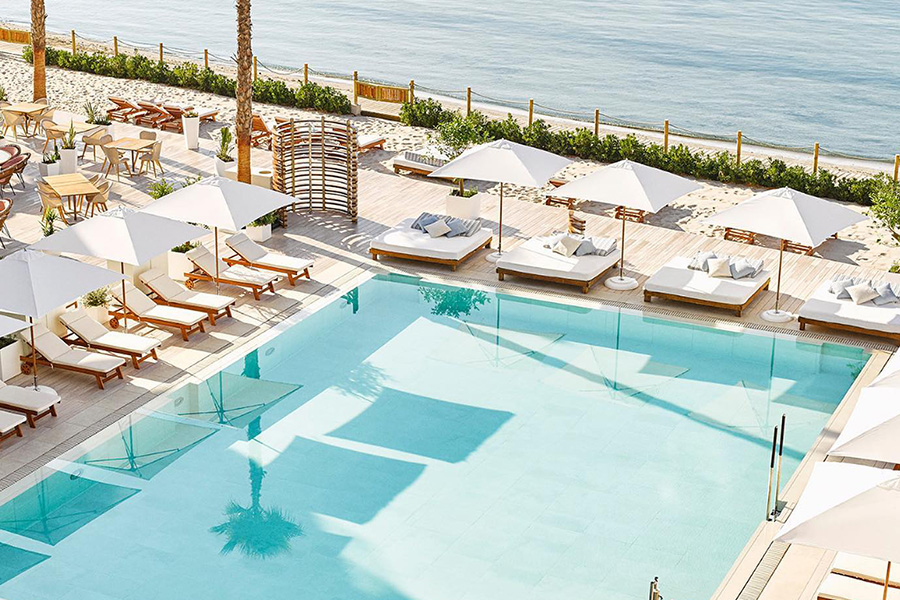
With wellness retreats booming the world over, as tourists prioritise nourishing both their physical and mental wellbeing during their precious downtime, it comes as no surprise that the global wellness tourism market is set to smash past the US$1 trillion mark in 2024, according to the Global Wellness Institute. The GWI reports that the global wellness tourism market has been the number one growth leader among all 11 wellness markets since 2020, clocking 36% annual growth between 2020 and 2022, to reach US$651bn in 2023, buoyed by a 62% surge in wellness spending in the Middle East between 2020-2022.
The GWI forecasts that the wellness tourism market will more than double from 2022 to 2027, with dramatic spending jumps from 2023 ($868 billion) to 2024 (US$1 trillion) to 2027 (US$1.4 trillion), seeing it outperform the general tourism market. Wellness tourism now accounts for one in every five ‘travel dollars’ spent, with well-heeled wellness travellers spending 41% more per trip than the typical international tourist, according to the GWI. The top five global markets for wellness tourism are the US, Germany, France, Austria and Switzerland, with first place the US currently valued at US$256bn and Germany seeing the biggest growth rate between 2020 and 2022 to US$70.2bn.
6. Outernet Is London’s Most Visited Attraction
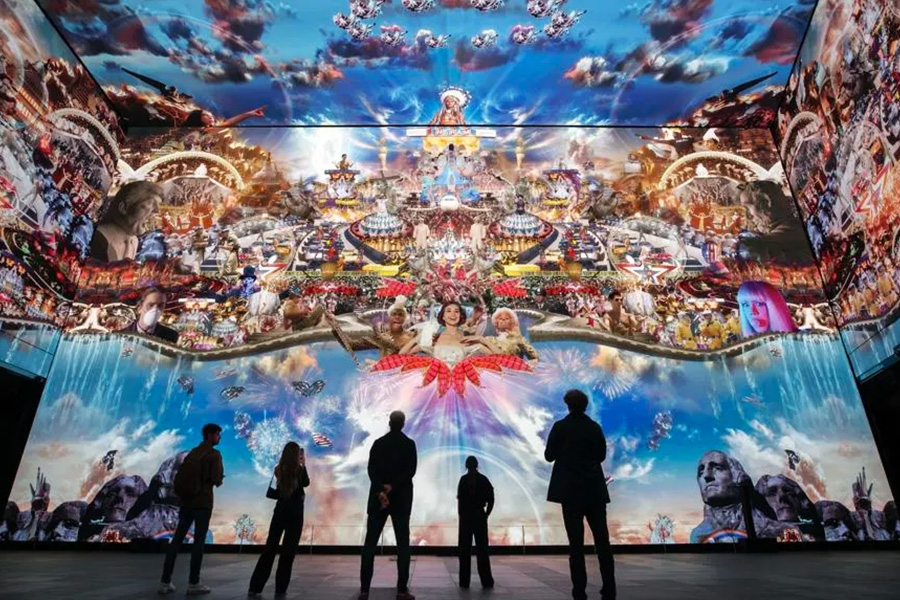
Proof (if ever you needed it) of the growing importance of the Experience Economy) is the fact that immersive entertainment hub Outernet was London’s most visited attraction in 2023. As reported by The Metro, the entertainment district beat the likes of The London Eye, the Natural History Museum, the Shard and Madame Tussauds to be crowned the most visited attraction in town last year. Formed of two venues in Tottenham Court Road, Outernet has welcomed a whopping 6.25 million visitors since it opened in November 2022, surpassing the 4.7m visitors to the Natural History Museum in the past year.
At the bleeding edge of immersive entertainment, Outernet fuses music, art and culture into a free, family-friendly experience. Sister space, HERE at Outernet, is a 2,000-capacity underground venue that hosts live music and DJ events. “We’re thrilled to have reached this record level of visitor numbers in just a year. Outernet was and remains something that is new and boundary-pushing, and with that comes both great excitement and risk. To have been able to show all our free immersive experiences alongside a huge range of brands is something we’re all very proud of,” said CEO Philip O’Ferrall.
7. Experiences ‘Won’t Be Replaced By Algorithms’

The future of the Experience Economy looks bright according to Michael Zeisser of FMZ Ventures, as computers will never be able to replicate the human touch. Speaking at the Skift Global Forum East in Dubai, Zeisser said the shift from a desire for material possessions to experiences reflects a deeper pursuit of higher-level human needs, such as self-actualisation. During his talk, Zeisser outlined the need for the travel sector to adapt to new tech, understand the changing consumer psyche and focus on creating impactful experiences that resonate on deep level, creating a “memory dividend”.
Zeisser divides the Experience Economy into four types: Kinetic experiences encompassing physical activities such as travel and sports; Psychotherapeutic experiences focusing on mental wellbeing; Functional experiences that include learning and skill-building; and Virtual experiences offered by digital platforms. “The differentiating characteristic of experiences is the human touch. In that sense, I believe that experiences are future-proofed. They won’t be supplemented by algorithms, computers and robots,” Zeisser said. “Which raises the question of how to scale and replicate that human touch?”



